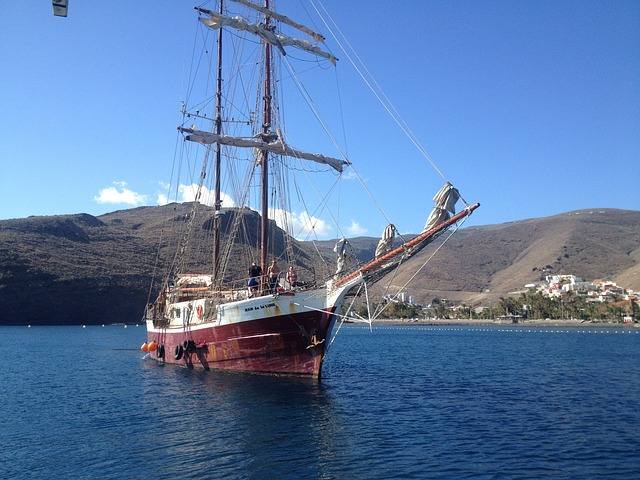Maritime law is an integral part of the shipping industry, but it is often misunderstood and overlooked by those who are not familiar with it.
As a result, many people who work on tall ships or other vessels may not be aware of the impact that maritime law can have on their lives and their livelihoods.
In this article, we will explore the importance of understanding maritime law on a tall ship and the ways in which it can affect your career and your safety.
What is Maritime Law?
Maritime law, also known as admiralty law, is a specialized area of law that deals with legal issues related to shipping, seafaring, and maritime commerce.
Maritime law applies to all vessels that are involved in maritime commerce, including cargo ships, cruise ships, fishing vessels, and tall ships.
The purpose of maritime law is to regulate and govern the activities that take place on the high seas in order to ensure the safety of ships and their crews and to protect the interests of all parties involved in maritime commerce.
The Importance of Understanding Maritime Law on a Tall Ship
Tall ships are fascinating vessels that attract many people who are interested in a unique and adventurous experience. However, working on a tall ship can be a challenging and potentially dangerous job.
As a crew member on a tall ship, it is imperative that you have a thorough understanding of maritime law in order to ensure your own safety and comply with legal requirements.
One of the primary reasons why understanding maritime law is essential on a tall ship is because of the unique risks that are associated with these vessels. Tall ships are often operated in remote or challenging environments and can be subject to extreme weather conditions. Crew members on tall ships are also responsible for the safety of the ship and its passengers, which means that they must be aware of the legal requirements and best practices for operating a vessel in a safe and responsible manner.
Another reason why understanding maritime law is essential on a tall ship is that it can affect your career and your future opportunities. Maritime law is an international field, and it is important to be aware of the legal requirements and regulations that apply to your vessel and your job. Failure to comply with these regulations can result in fines, legal liability, and even criminal prosecution, which can have a significant impact on your career and your future job prospects.
Registration and nationality
Tall ships, like any other vessels, need to be registered with a flag state, which is the country that grants them the right to fly its flag and provides them with legal protection and representation. The flag state also has the authority to enforce its laws and regulations on the vessel, such as safety standards, crew qualifications, environmental compliance, and taxation. Therefore, it is important to know which flag state your tall ship belongs to and what are its obligations and benefits.
Liability and insurance
Tall ships may be involved in accidents or incidents that cause damage or injury to themselves, their crew, their passengers, or third parties. These may include collisions, groundings, fires, explosions, sinkings, storms, piracy, or terrorism. In such cases, the parties involved may seek compensation for their losses or damages from the responsible party or parties. Therefore, it is important to know who is liable for what and how much, and what kind of insurance coverage your tall ship has or needs.
Legal Issues Affecting Tall Ships
There are several legal issues that can affect tall ships and their crew members. One of the most important is the requirement for crew members to hold valid maritime documents and licenses. Depending on the position you hold on a tall ship, you may be required to hold a Merchant Mariner Credential (MMC) or a Certificate of Competency (CoC). These documents demonstrate that you have received the proper training and have the necessary qualifications to operate a vessel in a safe and responsible manner.
Another legal issue that can affect tall ships is liability for accidents or injuries that occur on board. As a crew member, you have a legal responsibility to ensure the safety of the ship and its passengers. Failure to do so can result in legal liability and potential lawsuits. It is important to understand your legal responsibilities and to take appropriate actions to prevent accidents and injuries on board.
Finally, tall ships may also be subject to international regulations, such as the International Convention for the Safety of Life at Sea (SOLAS). These regulations set standards for ship design, construction, and operation, and failure to comply with them can result in fines and legal liability. It is essential to be aware of any international regulations that apply to your vessel and to take appropriate steps to ensure compliance.
Conclusion
Maritime law is an important aspect of sailing on a tall ship that you should not ignore. It can affect your rights and obligations as a crew member, a passenger, or a charterer, as well as your liability and insurance coverage in case of accidents or incidents.
It can also influence your compliance with various laws and regulations that apply to your tall ship activity and operation. Therefore, it is advisable to learn more about maritime law on a tall ship before you embark on your adventure.
You can do so by reading books and articles, taking courses or workshops, or consulting experts or professionals. By doing so, you can enhance your knowledge and skills, protect your interests and assets, and enjoy your tall ship experience to the fullest.

![The Importance of Safety Measures on Tall Ships [Video] The Importance of Safety Measures on Tall Ships [Video]](https://www.tallshipssunderland.com/wp-content/uploads/2023/03/tall-ship-safety-150x150.jpg)
![How to Train to Become a Tall Ship Sailor [6 Steps] How to Train to Become a Tall Ship Sailor [6 Steps]](https://www.tallshipssunderland.com/wp-content/uploads/2023/03/tall-ship-sailor-150x150.jpg)



![Independence Seaport Museum [Video] Independence Seaport Museum [Video]](https://www.tallshipssunderland.com/wp-content/uploads/2023/08/independence-seaport-museum-150x150.jpg)